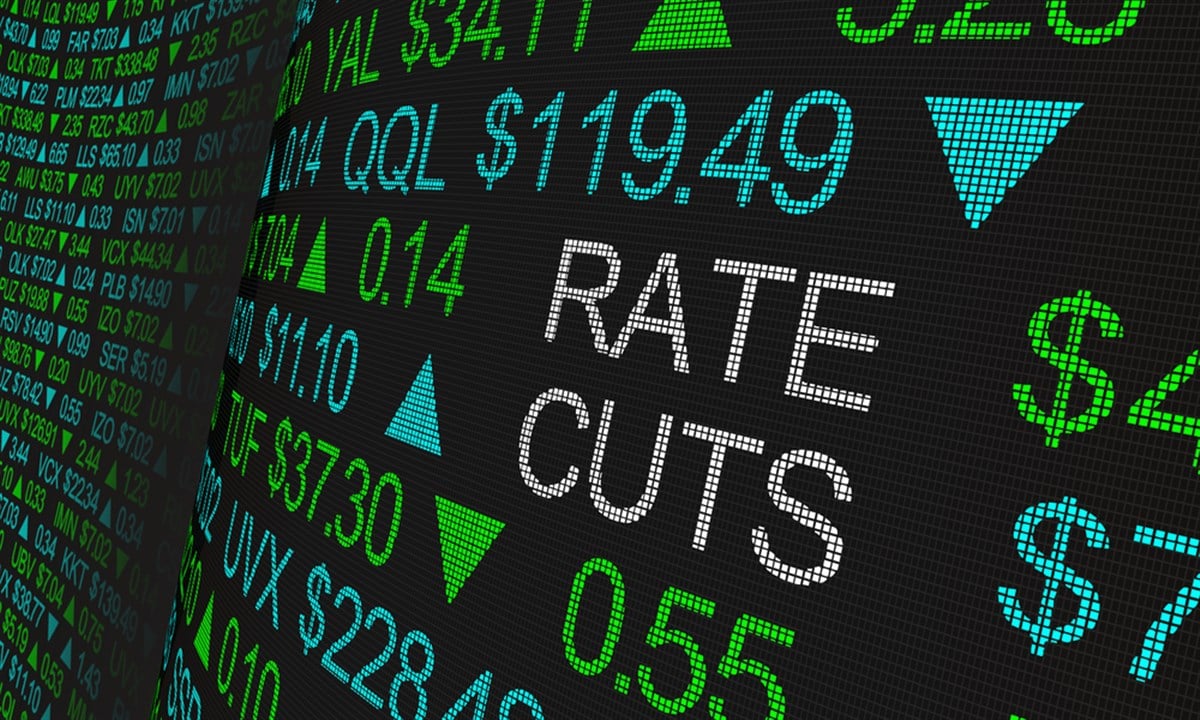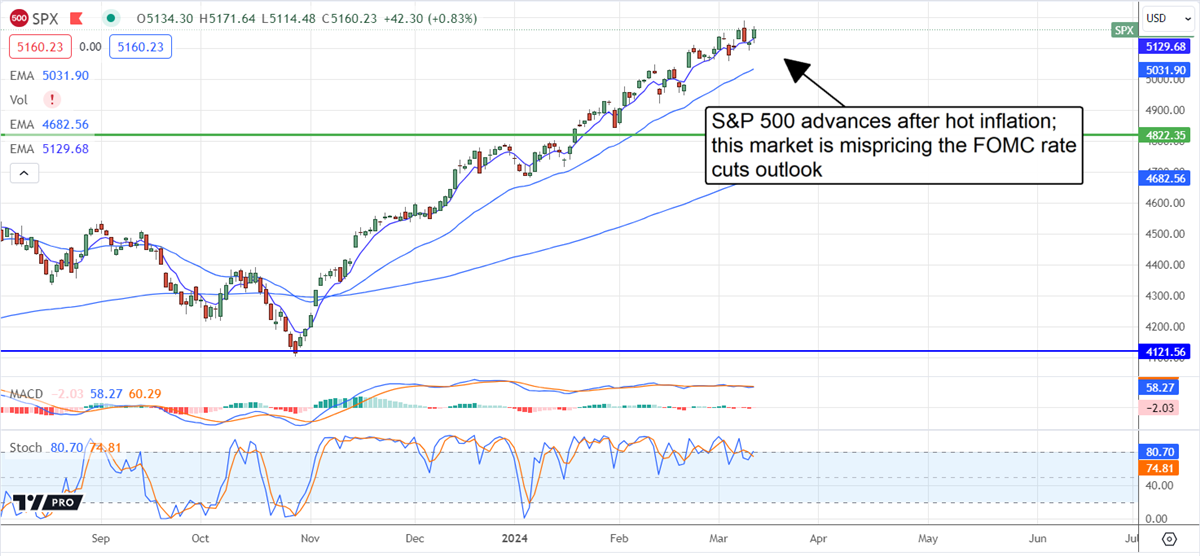
The stock market has absolutely, 100% priced in a rate cut. The market has been expecting a rate cut for more than a year and is, in fact, pricing in a soft landing and sustained economic growth. The question that needs to be answered is whether the market is mispricing a rate cut, and the answer to that is also yes. Estimates in late 2023 had the first interest rate cuts happening now, and the FOMC is a long way from fulfilling that hope. This means the market is setting itself up for a fall, which could be a big one.
The FOMC Won’t Cut Rates Before Mid-Summer
The latest CPI data says the FOMC won’t cut rates until mid-summer at the earliest. The CPI data is a leading indicator for the PCE Price Index, the Fed’s favored tool to gauge consumer-level inflation, and it is hot.
The CPI data for February shows headline and core a tenth hotter than expected month-to-month and year-over-year, with the YOY comps accelerating. The core YOY comp came in at 3.8%, up from 3.7%, which will not give the Fed confidence inflation is tamed. At best, the committee will hold fast while it waits for more data, and there isn’t enough time for enough data to match market expectations for when the first cut will come.
The market has been pushing back its timeline for rate cuts and pushed it back again following the CPI release. The CME FedWatch Tool says there is a 0% chance for a rate cut this month and only a 16% chance for a cut in May. The odds for the first cut aren’t appreciable until June, and there is a chance of less than 50/50 for two by July. In comparison, the market had expected two cuts by June only two months ago. The takeaway is that inflation is still hot and interest rates are high; they are both likely to remain that way through mid-year, where the risk to markets lies.
Equity markets are banking on an economic pivot mid-year. That pivot is centered on interest rates and FOMC and highlighted by the forecasts for earnings. The S&P 500 (NYSEARCA: SPY) is expected to produce growth this year. More importantly, earnings growth is expected to accelerate sequentially throughout the year, with the back half doubling the 6.2% gain in the front. Most growth is expected in Q4, about 17% YOY, but it may not come if rates aren’t cut.
Consumers are Resilient: Labor Markets are Solid
There were some signs of weakening in the February labor data, but the data was solid on balance. Robust job gains were offset by downward revisions that left the three months above average for the preceding ten years. Unemployment rose but remains low relative to history and at levels deemed healthy in 2018-2020. Wages are also increasing, up more than 4% YOY, underpinning resilience in the consumer economy.
Consumer habits are shifting, but spending remains strong, and growth is present among top retailers, including Walmart, Costco Wholesales (NASDAQ: COST), Kroger (NYSE: KR), and The TJX Companies (NYSE: TJX)—no reason for the Fed to cut rates and ample for them to keep policy tight.
The Technical Outlook: S&P 500 Advances on “As-Expected” Inflation Data
Some MSM outlets reported the inflation data as expected, and the S&P 500 advanced. The market gained more than 1% at the session's high but showed resistance near the all-time high.
Resistance at the all-time high may be strong. Even if the all-time high doesn’t cap gains the upside is limited because the S&P 500 chart highlights include a 25% gain since November 2023 and diverging indicators. Diverging indicators are a sign of market weakness that often precede corrections. Trading at the current level, the index is more than 5% above the 2021 all-time high, the first and best target for solid support, and set up to fall.





